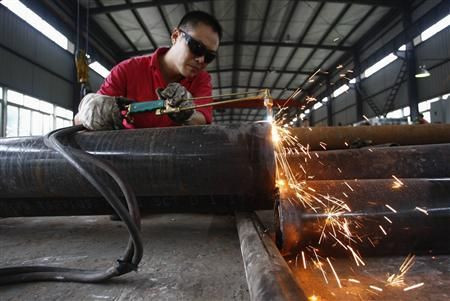Why the Chinese save so much

China has been blasted by the West for consuming too little and saving too much. In fact, the Asian savings glut has been blamed for fueling Western housing booms and busts.
China has one of the highest national savings rate in the world at nearly 50 percent of the GDP. This propensity has become more pronounced since the mid-1990s, particularly in households with younger and older heads.
In other words, the age-savings profile is U-shaped.
However, given the growth in the economy (and income, to a lesser extent) during this period and the expectations of growth in the future, why are Chinese people saving so much?
The answer, according to an International Monetary Fund (IMF) paper, is primarily the rise in income uncertainty and the 1997 pension reform.
As the Chinese economy modernized and became more market-oriented -- and the state no longer guaranteed life-time employment -- the average income increased, but so did shocks (or uncertainty) to personal income.
As a result, younger households, who have a lower buffer stock of savings, are incentivized to build it up to protect themselves from these shocks.
To explain the increased savings for older households, the IMF paper points to the 1997 pension reform. Prior to 1997, urban workers received their pensions, which had a replacement ratio of about 75 percent relative to average wages, through predominantly state-owned enterprises.
After 1997, the total pension package they received was only about 60 percent of the average wage. This reduction motivated older households in recent years to increase their savings.
Aside from these two issues, there are other factors that explain the high savings rate.
Paying for medical expenses has always been a factor that motivated Chinese households to save.
More recently, the skyrocketing real estate prices are forcing parents to save an extraordinary amount of money to buy houses for their sons because in China because urban men typically cannot marry unless they have their own house.
In fact, a study by Columbia University Professor Shang-Jin Wei found that the savings rate in households with sons are higher in regions where the gender imbalance is most pronounced -- this phenomenon is likely due to the fierce competition to buy the best houses for their sons in order to attract scarce brides.
So if China wishes to rebalance its economy, it needs more than the simple adjustments of its currency. Indeed, pension reforms, health care reforms, unemployment insurance reforms, and reasonably priced real estate may be factors that are even more important than the value of the yuan.
Email Hao Li at hao.li@ibtimes.com
© Copyright IBTimes 2024. All rights reserved.











